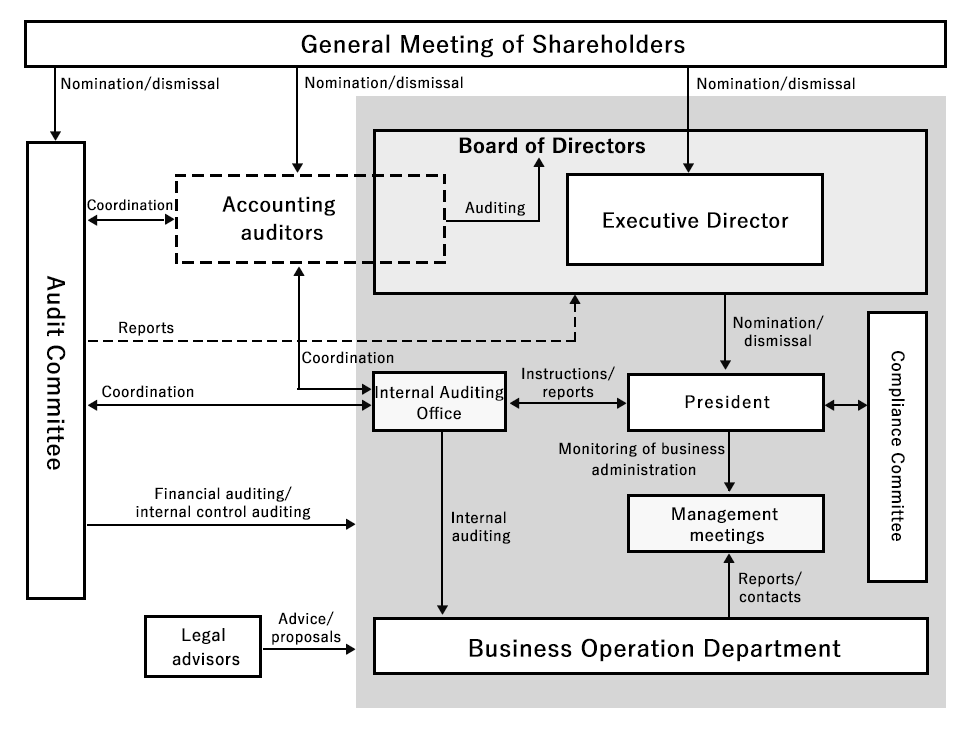Corporate Governance
Fundamental Stance
We believe that, in today’s rapidly-changing business environment, we need to make fair and prompt decisions and use these as the basis for conducting our operations. By doing so, we aim to provide highly transparent corporate administration which gives consideration to shareholder profitability. At the same time, we perceive the following five issues to be of the utmost importance in increasing the effectiveness and efficiency of our operations:
1. Reinforcement of corporate control functions
2. Improvement of compliance
3. Establishment of corporate principles
4. Risk management
5. Accountability
Overview of Corporate Governance System
Our company has set up an Audit Committee. We have created a system which facilitates coordination between the Audit Committee, which includes external directors, the Internal Auditing Office and accounting auditors, while allowing the Board of Directors to make decisions and carry out business. We created this system out of a desire to ensure that our business monitoring systems are fair and highly transparent.
Board of Directors: The Board of Directors consists of 3 directors (excluding Audit Committee members) and 3 Audit Committee members (of which, 2 are external directors). In order to decide management strategies and oversee the performance of duties of directors in a more precise manner, in addition to holding regular monthly meetings, the Board of Directors holds extra meetings as needed, making rational decisions that are both prompt and accurate.
Audit Committee: The Audit Committee consists of 3 Audit Committee members (of which, 2 are external directors). In addition to Board of Director meetings, members of the Audit Committee, especially the Chair of the Audit Committee, actively sit in on important meetings and conduct rigorous monitoring of how the directors conduct business affairs. Furthermore, this committee exchanges information and opinions with auditing firms and the Internal Auditing Office, working to ensure the effectiveness of auditing work by sharing information.
Internal Auditing Office: The Internal Auditing Office conducts business audits, accounting audits and surveys specified by the President based on an annual Internal Auditing Plan.
Auditing firms and lawyers: Auditing firms and lawyers provide appropriate advice in the event doubts arise during the course of work.
Corporate Governance System Chart
